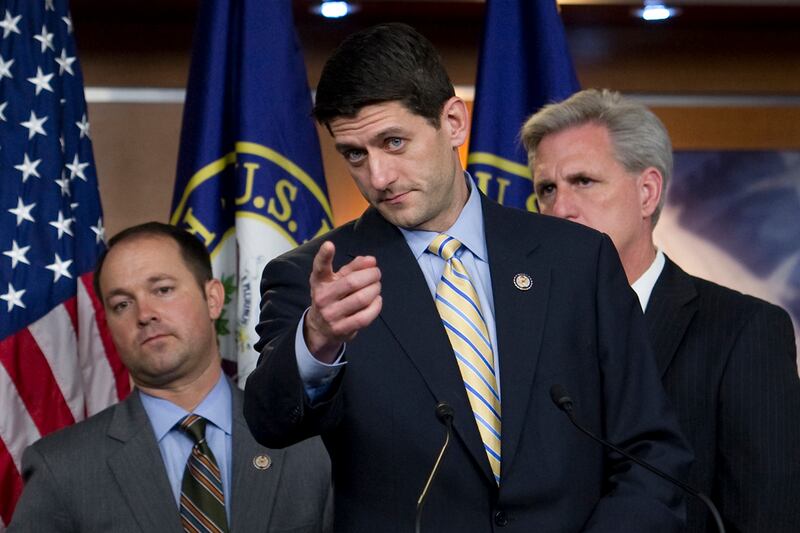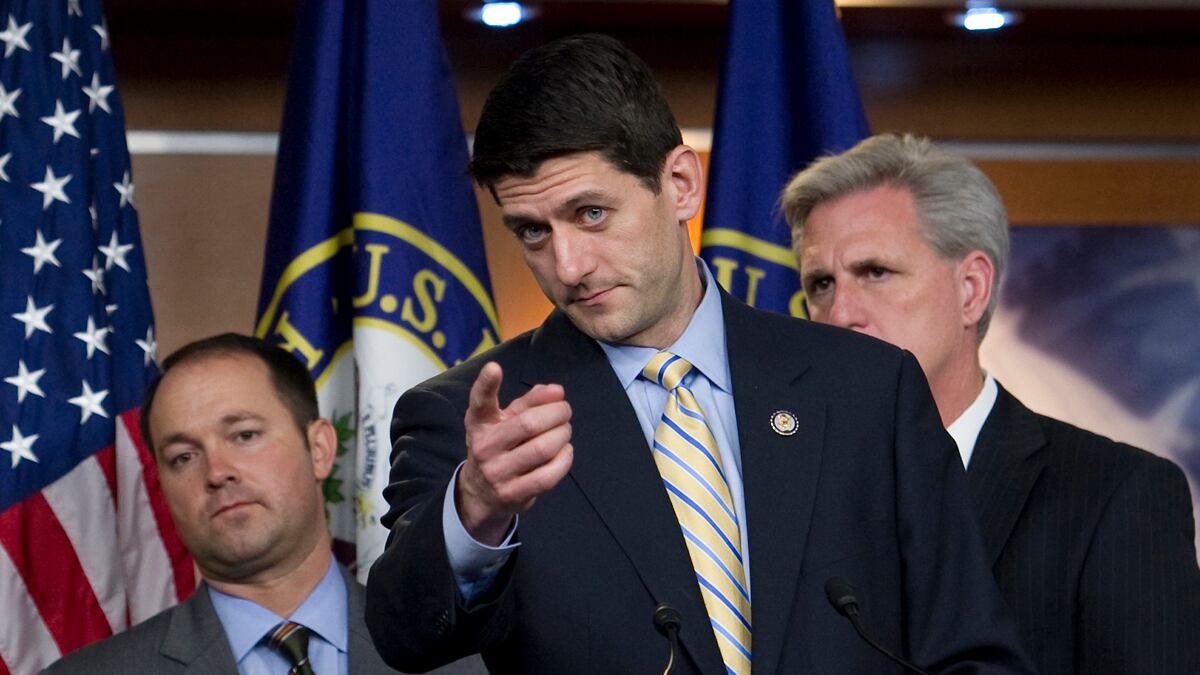Some called it daring and others too weak, but the Republican Party has embraced Paul Ryan’s budget. The House approved the Wisconsin congressman’s blueprint Thursday on a strict party-line vote, 228-191. Considering the measure has no chance of making it past the Senate, it was an episode crafted around the dramatization and optics of passing a fiscally aggressive bill during an election year.
Ryan’s budget was fashioned from his 2009 budget, the Path to Prosperity, which proposed substantial cuts in federal domestic spending. The core parts of the 2012 version centered on a simplified tax code, a proposal to privatize Medicare, and a plan to balance the budget by 2040. Both documents were almost instantly embraced by Republicans, passed less than one month from the time they were introduced.
Yet get past the policy particulars—of which there are lots—and the document becomes intensely political. It effectively sets up the boundaries of several battles the parties will have this year, including over the budget and over the parties’ different visions for the country, a debate that voters will settle this fall.
Republicans are hoping to claim victory by running on the platform of responsibility. And their argument goes something like this: As the nation’s debt grows, it’s the GOP that is working, at its own political peril, to address it. As federal spending goes up, it’s the GOP that wants to rein it in. And as the Democrats in charge of the Senate have refused to pass a budget for the past three years, it’s the GOP that continues to put ideas on the table.
Democrats have had trouble answering that last charge, specifically after refusing to pass a budget of their own almost since President Obama took office. The reasoning is mostly reasonable, that almost no budget can pass both highly polarized chambers at this point, so it’s just easier to keep extending the fiscal 2010 budget (making occasional tweaks).
But the lack of a new annual framework doesn’t provide stability and confidence to American businesses and investors. It also hasn’t addressed the nation’s rising debt, which both parties have agreed is a growing cancer, but have yet to agree on a way for confront (despite several near-misses on large agreement packages).
So while Ryan’s plan has no chance to become law, it becomes, in effect, a political outline for the GOP’s main platform heading toward an election. Its backers, including Ryan, Speaker John Boehner and Majority Leader Eric Cantor, say it’s the formal declaration of Republican principles in a year that will be defined by spending, debt, and economic growth. Mitt Romney chimed in from the campaign trail to praise the nonbinding document. “I applaud it,” he said. “It’s an excellent piece of work, and very much needed.”

The White House, meanwhile, was eager to dismiss the House vote as a purely partisan stunt. “Today’s vote stands as another example of the Republican establishment grasping onto the same failed economic policies that stacked the deck against the middle class and created the worst financial crisis in decades,” spokesman Jay Carney said in a statement after the vote. Rep. Steve Israel, a senior Democrat in the House, was more colorful with his words, alleging the document “kicks the middle class in the stomach.”
It’s not uncommon to see such sharp divisions in Washington over a piece of legislation. But perhaps most missed in the swirling attacks is the actual delay of the nation’s piling fiscal problems, all likely to grow without compromise on major issues such as entitlement programs, domestic spending, and the tax code. After Ryan’s document passed, senior Republicans held a press conference claiming they’ve put the country one step close to sound fiscal footing. And yet in some ways, it’s never been further away.






